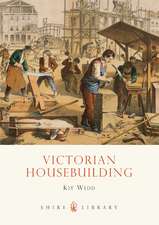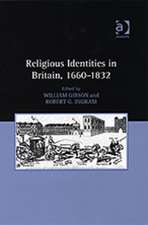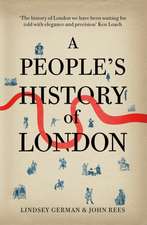The Boyle Papers: Understanding the Manuscripts of Robert Boyle
Autor Michael Hunteren Limba Engleză Hardback – 19 mar 2007
Preț: 1297.01 lei
Preț vechi: 1581.72 lei
-18% Nou
Puncte Express: 1946
Preț estimativ în valută:
248.21€ • 269.52$ • 208.50£
248.21€ • 269.52$ • 208.50£
Carte tipărită la comandă
Livrare economică 22 aprilie-06 mai
Preluare comenzi: 021 569.72.76
Specificații
ISBN-13: 9780754655688
ISBN-10: 0754655687
Pagini: 688
Dimensiuni: 156 x 234 x 38 mm
Greutate: 1.16 kg
Ediția:1
Editura: Taylor & Francis
Colecția Routledge
Locul publicării:Oxford, United Kingdom
ISBN-10: 0754655687
Pagini: 688
Dimensiuni: 156 x 234 x 38 mm
Greutate: 1.16 kg
Ediția:1
Editura: Taylor & Francis
Colecția Routledge
Locul publicării:Oxford, United Kingdom
Cuprins
Contents: Introduction: The Boyle Papers in context; Robert Boyle and his archive; The lost papers of Robert Boyle, Michael Hunter and Lawrence M. Principe; The workdiaries of Robert Boyle: a newly discovered source and its internet publication, Michael Hunter and Charles Littleton; Robert Boyle's Paralipomena: an analysis and reconstruction, Michael Hunter, Harriet Knight and Charles Littleton; The making of Robert Boyle's Free Enquiry into the Vulgarly Receiv'd Notion of Nature (1686), Michael Hunter and Edward B. Davis; Catalogue of the Boyle papers, letters, notebooks and associated manuscripts; Index.
Notă biografică
Michael Hunter is Professor of History at Birkbeck College, University of London, UK. He is the author of many books on science and its milieu in late seventeenth-century England, and is also the editor-in-chief of the Works and Correspondence of Robert Boyle.
Recenzii
’The Boyle Papers is an indispensable work for anyone interested in Robert Boyle, early experimentation, or the history of the Royal Society. By making this large, complicated set of seventeenth-century documents more accessible, Hunter performed a huge service to future scholarship. In compiling this authoritative and easy-to-use volume, Hunter has ensured that others will benefit from decades of this own hard work with these materials. At last there are clear paths through the labyrinth of the Boyle papers for other to follow.’ Renaissance Quarterly ’The volume also contains a revised catalogue of the Boyle Papers, which completely supersedes the catalogue published in 1992... But the volume is much more than a descriptive account of and navigational tool for one of the richest scientific troves to come down to us from the early modern period. For The Boyle Papers includes a set of studies of the contents of the archive that together furnish us with an exemplary model of how scholars can quarry a mass of over twenty thousand leaves in order to glean new and important insights into the intellectual development of a leading scientist and his methods of work... In all, the Boyle papers is an important and timely publication... One hopes that other substantial early modern archives will soon be subjected to the same level of expert scholarly analysis.’ Isis ’Scholarship on Boyle's life and work has flourished in recent years, owing in large part to Michael Hunter's publications... Just as the title implies, this volume contains the necessary material for a full understanding of the Boyle archive and provides scholars with an invaluable resource on this towering figure in the history of science and early modern thought.’ Chemical Heritage ’Hunter's new catalogue of the Boyle papers will certainly be appreciated amongst Boyle specialists and 17th century scholars interested in the organisation of archival material from this period.’ Metascience
Descriere
The papers, letters and ancillary manuscripts of the influential scientist, Robert Boyle (1627-91) have been at the Royal Society since 1769”a catalogue of them first published in 1992. This volume presents that catalogue in completely revised form, updated to do justice to the extensive use made of the archive in the definitive editions of Boyle's Works and Correspondence published between 1999 and 2001. The book also includes studies of the history of the archive and its components, in which significant conclusions are drawn about the development of Boyle's ideas. This book will be indispensable to anyone with a serious interest in Boyle.












